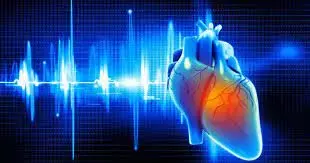- Home
- Medical news & Guidelines
- Anesthesiology
- Cardiology and CTVS
- Critical Care
- Dentistry
- Dermatology
- Diabetes and Endocrinology
- ENT
- Gastroenterology
- Medicine
- Nephrology
- Neurology
- Obstretics-Gynaecology
- Oncology
- Ophthalmology
- Orthopaedics
- Pediatrics-Neonatology
- Psychiatry
- Pulmonology
- Radiology
- Surgery
- Urology
- Laboratory Medicine
- Diet
- Nursing
- Paramedical
- Physiotherapy
- Health news
- Fact Check
- Bone Health Fact Check
- Brain Health Fact Check
- Cancer Related Fact Check
- Child Care Fact Check
- Dental and oral health fact check
- Diabetes and metabolic health fact check
- Diet and Nutrition Fact Check
- Eye and ENT Care Fact Check
- Fitness fact check
- Gut health fact check
- Heart health fact check
- Kidney health fact check
- Medical education fact check
- Men's health fact check
- Respiratory fact check
- Skin and hair care fact check
- Vaccine and Immunization fact check
- Women's health fact check
- AYUSH
- State News
- Andaman and Nicobar Islands
- Andhra Pradesh
- Arunachal Pradesh
- Assam
- Bihar
- Chandigarh
- Chattisgarh
- Dadra and Nagar Haveli
- Daman and Diu
- Delhi
- Goa
- Gujarat
- Haryana
- Himachal Pradesh
- Jammu & Kashmir
- Jharkhand
- Karnataka
- Kerala
- Ladakh
- Lakshadweep
- Madhya Pradesh
- Maharashtra
- Manipur
- Meghalaya
- Mizoram
- Nagaland
- Odisha
- Puducherry
- Punjab
- Rajasthan
- Sikkim
- Tamil Nadu
- Telangana
- Tripura
- Uttar Pradesh
- Uttrakhand
- West Bengal
- Medical Education
- Industry
High resting heart rate may be risk factor for end-stage renal disease

High resting heart rate may independent risk factor for end-stage renal disease suggests a new study published in the Journal of the American Heart Association.
The relationship between resting heart rate (RHR) and the risk of end‐stage renal disease (ESRD) among those without cardiovascular disease remains unclear. We aim to establish temporal consistency and elucidate the independent relationship between RHR and the risk of ESRD.
This cohort enrolled participants from 476 347 individuals who had taken part in a screening program from 1996 to 2017. We identified 2504 participants who had ESRD, and the median follow‐up was 13 years. RHR was extracted from electrocardiography results, and the study assessed the relationship between RHR and the risk of ESRD using the Cox proportional hazards model. Of the participants, 32.6% had an RHR of 60 to 69 beats per minute (bpm), and 22.2% had an RHR of ≥80 bpm. Participants with an RHR of ≥80 bpm had a higher stage of chronic kidney disease, lower estimated glomerular filtration rate, and more proteinuria than those with an RHR of 60 to 69 bpm.
Participants with an RHR of 80 to 89 and ≥90 bpm had a 24% (hazard ratio [HR], 1.24 [95% CI, 1.09–1.42]) and 64% (HR, 1.64 [95% CI, 1.42–1.90]) higher risk of ESRD, respectively. The risk of ESRD remained significantly elevated (HR, 1.32 [95% CI, 1.10–1.58] per 10‐beat increase from 60 bpm) after excluding participants who smoked; had hypertension, diabetes, or hyperlipidemia; or were overweight.
An RHR of ≥80 bpm is significantly associated with an increased risk of ESRD. These results suggest that RHR may serve as a risk factor for kidney disease in individuals without established cardiovascular disease risk factors.
Reference:
Resting Heart Rate Independent of Cardiovascular Disease Risk Factors Is Associated With End‐Stage Renal Disease: A Cohort Study Based on 476 347 Adults
Min‐Kuang Tsai, Wayne Gao, Kuo‐Liong Chien, Thu Win Kyaw, Chin‐Kun Baw, Chih‐Cheng Hsu and Chi‐Pang Wen. Originally published1 Dec 2023https://doi.org/10.1161/JAHA.123.030559Journal of the American Heart Association. 2023;12:e030559
Dr. Shravani Dali has completed her BDS from Pravara institute of medical sciences, loni. Following which she extensively worked in the healthcare sector for 2+ years. She has been actively involved in writing blogs in field of health and wellness. Currently she is pursuing her Masters of public health-health administration from Tata institute of social sciences. She can be contacted at editorial@medicaldialogues.in.
Dr Kamal Kant Kohli-MBBS, DTCD- a chest specialist with more than 30 years of practice and a flair for writing clinical articles, Dr Kamal Kant Kohli joined Medical Dialogues as a Chief Editor of Medical News. Besides writing articles, as an editor, he proofreads and verifies all the medical content published on Medical Dialogues including those coming from journals, studies,medical conferences,guidelines etc. Email: drkohli@medicaldialogues.in. Contact no. 011-43720751


